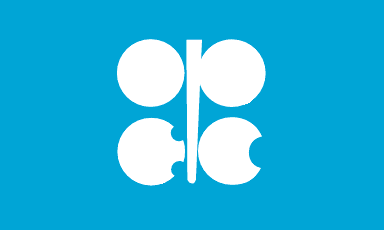OPEC is pumping enough oil to keep world markets more than satisfied and oil prices have been high largely due to geopolitical risk, the oil producing group said on Thursday.
The Organization of the Petroleum Exporting Countries (OPEC) said its own production had risen in April to 31.62 million barrels per day (bpd) as Iraq ramped up and Libya's oil industry recovered.
And the increased flows have helped push oil down $15 from a March high of $128 a barrel.
"Higher OPEC crude oil production underscores the current trend of plentiful supply in excess of market requirements," OPEC said in its monthly Oil Market Report.
Secondary sources now say that OPEC pumped 1.62 million bpd above its supply target, and demand for its own oil, in April.
The extra OPEC oil is filling gaps caused by an unusually large number of supply outages globally. Supply breaks were running at nearly 1.3 million bpd as of early April.
It has also offset a decline in exports from Iran, which is facing stiffening western sanctions over its disputed nuclear energy program.
Production figures reported directly by OPEC members to its Vienna headquarters show even higher rates. The "direct communication" figures for March put OPEC output at 32.4 million bpd versus the 31.3 million bpd assessed by secondary sources.
Output levels directly reported by OPEC members rose even more in April. Lead producer Saudi Arabia said it pumped 10.1 million bpd in April, up 179,000 bpd from March.
And Iran told OPEC its output in April was 3.76 million bpd, steady since February, effectively denying that supply has been impacted by sanctions against Tehran.
OPEC in December set its official supply target at 30 million bpd, settling an argument that broke out in 2011 after Iran and other members opposed a Saudi-led plan to raise the production ceiling.
DEMAND GROWTH
Supply from producers outside OPEC is also on the rise, according to the report, with non-OPEC supply growth seen at 640,000 bpd this year, up 50,000 bpd on the previous forecast.
"It is important to note the general consensus among various sources regarding the good performance of non-OPEC supply this year, implying more barrels will be available in the market," said the group which pumps more than a third of the world's oil.
OPEC also said the decline in world oil demand growth had stopped, at least for the short-term, as the U.S. economy stabilizes and non-OPEC demand continues to grow.
It said world oil demand would grow by 900,000 bpd in 2012, up 40,000 bpd from its previous assessment in April.
"Given the stabilization of the U.S. economy and the shutdown of the Japanese nuclear power plants, world demand has - at least, for the short term - stopped its decline and has begun to show growth," said OPEC.
The U.S. Energy Information Administration also raised its 2012 world oil demand growth forecast this week. The agency sees demand growth at 960,000 bpd - up 70,000 bpd from its previous estimate.
(Source: Reuters)





